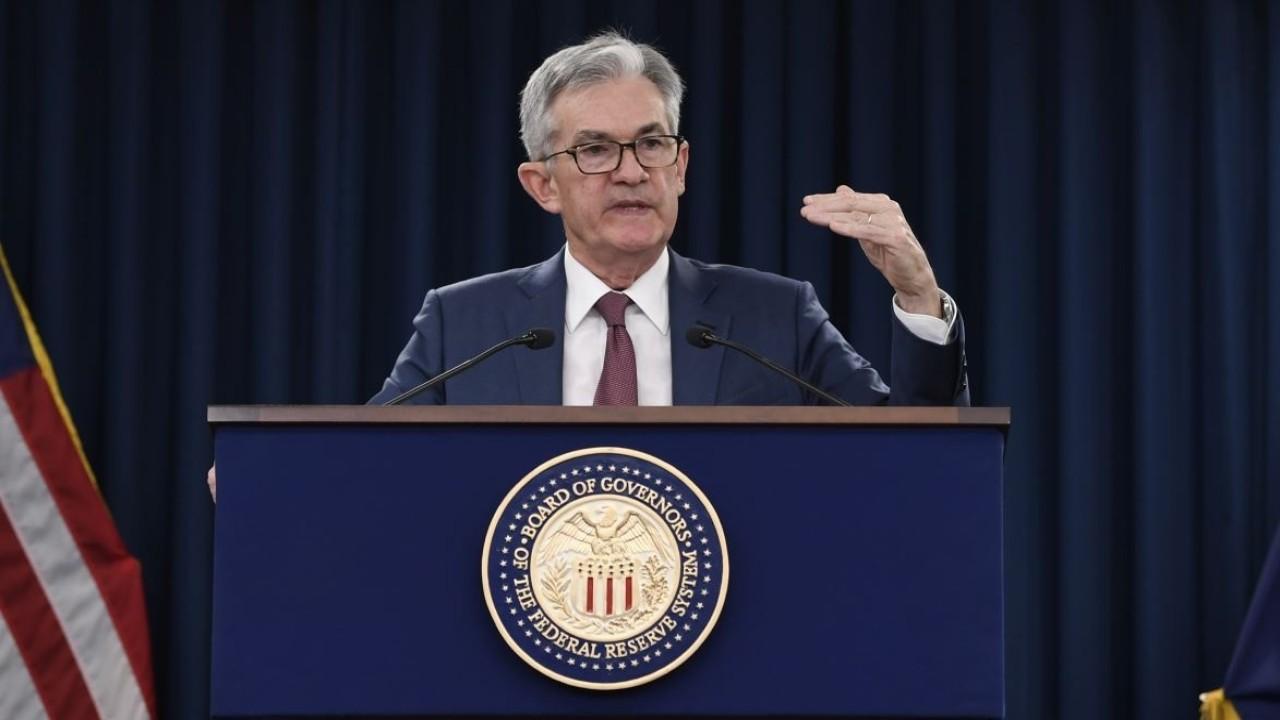Conservative leaders urge Trump to rein in coronavirus spending as US deficit swells
The US deficit soared to $1.9T for the first eight months of the fiscal year, the Congressional Budget Office said
A group of influential conservative leaders urged President Trump to rein in federal spending as the U.S. borrows aggressively to rescue the nation’s economy from the worst downturn since the Great Depression.
In a letter addressed to Trump and Senate Majority Leader Mitch McConnell, 15 co-authors, including White House economic advisers Art Laffer and Stephen Moore, as well as Americans for Tax Reform President Grover Norquist and Job Creators Network President Alfredo Ortiz, called for a suspension of the “multi-trillions of dollars” in coronavirus spending.
FED WARNS ECONOMIC DAMAGE FROM CORONAVIRUS PANDEMIC COULD BE 'QUITE PERSISTENT'
The conservative leaders argued that further spending could derail the U.S. economy’s recovery from the virus outbreak and subsequent shutdown.
“Runaway government spending is the new virus afflicting our economy,” they wrote, calling for Republicans to repeal the 7.5 percent payroll tax that’s paid by both workers and their employers. Trump has repeatedly said he would like to cut payroll taxes, though critics have suggested it would not help the individuals who need the most assistance. It would cost an estimated $800 billion to temporarily eliminate the payroll tax, according to a recent analysis published by the University of Pennsylvania’s Wharton School.
“The best way to supercharge a jobs recovery would be to repeal the payroll tax so that every working American would receive a 7.5 percent raise in the paycheck immediately, and every small business would see a reduction in their payroll costs of 7.5 percent,” the authors wrote. “This incentivizes hiring and work. The economy desperately needs more of both of these and less debt spending.”
WHAT HAPPENS TO YOUR UNEMPLOYMENT BENEFITS IF YOU REFUSE TO GO BACK TO WORK?
The U.S. deficit soared to $1.9 trillion for the first eight months of the fiscal year, the Congressional Budget Office said. In May, the gap between what the government spent and what it collected hit $424 billion, more than twice the level it was at one year ago. The nonpartisan agency estimated that revenue in May totaled $175 billion — down $58 billion from last year, the result of a decline in wages and overall economic activity.
The deficit for fiscal 2020 is expected to hit $3.7 trillion, a record. The current record for a fiscal year deficit is $1.41 trillion, set in 2009.
Congress has already approved three massive stimulus packages totaling nearly $3 trillion to offset the economic pain triggered by the virus outbreak. That includes the $2.2 trillion CARES Act signed into law at the end of March. In the span of three months, the U.S. unemployment surged from a 50-year low to an 80-year high, as more than 44 million Americans lost their jobs.
US JOB GROWTH ROARED BACK IN MAY: THESE INDUSTRIES SAW THE BIGGEST GAINS
Despite a stunningly strong May jobs report, Republicans and Democrats largely agree that another round of aid is still necessary, though they’re divided on specific policy measures. House Democrats last month passed a $3 trillion spending bill, the HEROES Act, that included another round of $1,200 payments to some Americans and extended the extra $600-a-week in unemployment benefits, which are set to expire at the end of July, through January.
But the conservative authors also contended that additional spending, including the “irresponsible Pelosi bill,” could put the U.S. on an unsustainable track to hit a $10 trillion federal budget. That’s more than the U.S. spent during the Revolutionary War, the Civil War, and World War I and II combined, they said. On top of state and local expenditures, the U.S. government -- for the first time in history -- would represent more than half of all national income.
US DEBT SET TO EXCEED NATION'S GDP FOR FIRST TIME SINCE WORLD WAR II, WATCHDOG WARNS
“In other words,” they wrote, “our government sector would be larger in size than all of the output of every business and every private sector worker in America. This is a road to financial ruin.”
The letter signatories included: American Legislative Exchange Council CEO Lisa Nelson, FreedomWorks President Adam Brandon, Conservative Partnership Institute founder Jim DeMint, University of Chicago economics professor Casey Mulligan, Tea Party Patriots co-founder Jenny Beth Martin, former Ronald Reagan cabinet member William Bennett, Media Research Center founder Brent Bozell, former Rep. Scott Garrett, Center for National Policy Executive Director Bob McEwan, former Attorney General Scott Edd Meese, former Office of Management and Budget Director Jim Miller and Center for National Policy Vice President William Walton.




















